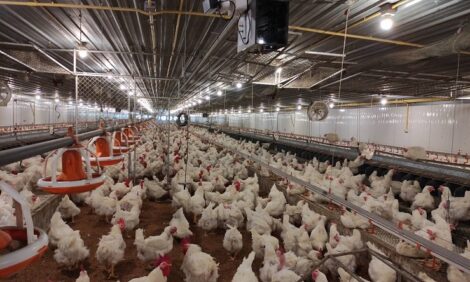



Public Submissions Sought On Livestock Health Fee
SOUTH AUSTRALIA - A four-week public consultation programme has begun regarding the State Government’s plans to introduce cost-recovery to cover some of the costs of its animal health programme.
Executive Director, Biosecurity SA, Will Zacharin, said legislation for the proposed Biosecurity Fee for the Animal Health program was planned to be introduced by the end of the year, however it was important to give livestock owners an opportunity to make submissions about the draft Bill before it was debated in Parliament.
“Biosecurity SA’s animal health programme investigates exotic diseases and has the professional staff and resources to quickly respond to emergency animal health outbreaks such as foot and mouth disease, avian influenza or Hendra virus,” Mr Zacharin said.
“Maintaining a regional network of highly trained veterinarians and animal health officers, who provide support for producers and private veterinarians to investigate livestock diseases, and staffing a 24-hour Animal Health hotline, does not come cheaply.
“We don’t believe it is unreasonable to ask livestock owners for an annual contribution towards the overall cost of maintaining this expertise and deploying those resources to combat threats to the state’s livestock, local communities and our exports.”
Mr Zacharin said the fee would be payable by owners of sheep, cattle, pigs, poultry, horses, deer, alpacas, camels, goats and bees. Total revenue raised by the fee in three years’ time would be $1.42 million – which is only part of the total annual cost of running the animal health programme.
“Not everyone who has livestock will have to pay the fee,” he said. “If you’ve less than 10 animals you won’t have to pay the fee, nor if you have less than 100 poultry or less than 10 beehives.
“While the annual costs for the Biosecurity Fee are still to be finalised for each animal sector, it’s likely the initial annual charge for many livestock owners in 2012/13 will be about $50.”
“So, for less than $1 a week livestock owners can be reassured there will be the expert staff and the know-how to quickly respond to livestock threats or emergencies that could devastate their farms, harm their animals, local community and exports.
“We’ll be phasing in the full cost of the Biosecurity Fee over three years to have minimal impact on producers.
“Finally, funds raised by the Biosecurity Fee can only be used on the animal health programme.”
The South Australian Farmers Federation (SAFF) Livestock Chairman, Andrew Ogilvie, has told Government officials that the SAFF will continue to support
the Property Identification Code (PIC) but won’t assist Government with implementation of the proposed
Biosecurity Levy.
“We will not aid and / or assist government in any way or enter into any more discussions about the
Biosecurity Levy, as it is a total waste of our time” he said.
"Biosecurity is an issue that affects everyone. A Biosecurity breach would affect the entire population not just
Livestock owners, therefore it is unreasonable to expect Livestock owners to meet the majority of the cost of guarding food
security for the general public."








